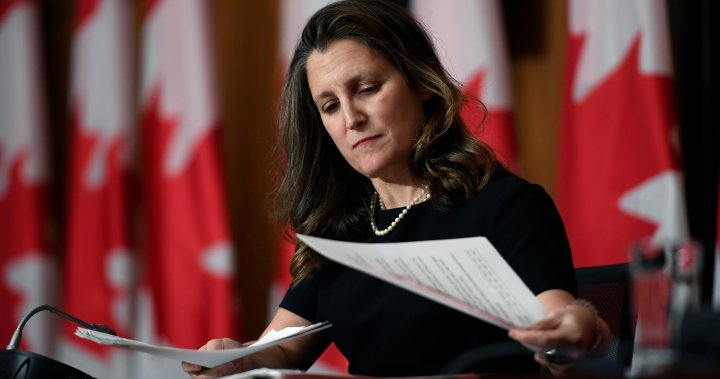
‘Significant uncertainty’ making speed of Canada’s economic recovery tough to predict: government
Global News
Omicron, inflation and supply chain woes are clouding Canada’s otherwise improved federal finances, making speed of economic recovery tough to call.
The “significant uncertainty” about the Omicron variant and supply chain woes are making it more difficult to predict how quickly Canada’s economy will rebound from the COVID-19 recession.
Welcome to fiscal forecasting in the age of COVID-19.
Tuesday’s fiscal update forecast two competing scenarios that could have significant impacts on that economic recovery. The “downside scenario” predicts “difficulty in adapting to COVID-19” should more variants, like Omicron, emerge to delay a return to normal economic life.
“Resurgent waves of the virus prevent a full recovery in hard-hit businesses in sectors requiring close contact, large gatherings, or international travel.… The ongoing pandemic also exacerbates the supply disruptions and labour shortages impacting a range of industries, with acute challenges extending until 2023,” the document read.
Under that scenario, the recent severe flooding in B.C. exacerbates supply chain issues “weighing on the recovery in the fourth quarter of 2021.” Supply and labour shortages could also “create significant cost pressures which keep inflation somewhat elevated” into late 2022.
In other words: the headwinds currently facing the Canadian economy continue longer than expected.
The rosier outlook projects those supply issues resolving themselves more quickly, COVID-19 risks being adapted to and Canadians getting back to spending on services, rather than just goods.
Even that scenario has its risks, however: stronger inflation in the near term, as “robust demand” outpaces constrained supply.











